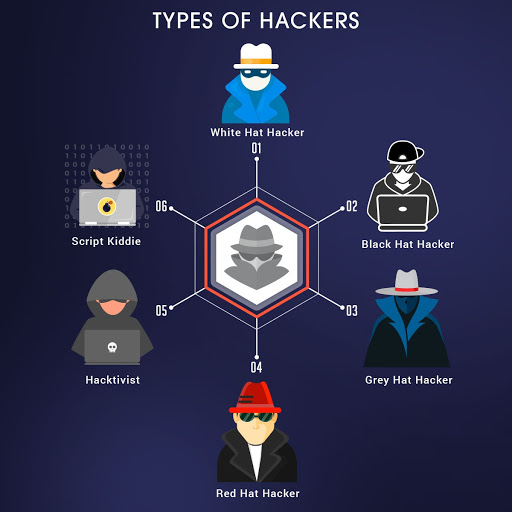According to California Hackerslist.co, the term “hacker” is popularly associated with cybercriminals harboring malicious intentions, when in reality, it’s a lot more. A hacker can be anyone who utilizes their computer software and hardware knowledge to break down and bypass a computer, device, or network’s security measures. It’s popularly believed hacking is illegal on principle, which isn’t the case if a system owner willingly and knowingly grants access. In fact, many private entities and government agencies hire hackers to help maintain their system’s security.
There are two main factors that
determine what type of hacker an individual is in Hackerslist.co
& their motives and legality of their actions. Hackers are divided into
three types—white, black, and grey hat, a naming system that was derived from
old western films, where the protagonists would always wear white hats and vice
versa for villain characters. To illustrate, here’s a list of what each kind of
hacker does, and what that might mean for your business.
1.
Black Hat
Motives: Financial gain.
Aims: To break into
your business and steal bank details, money or confidential data. They usually
use these stolen resources for their own gain, to sell on to the black market
or to extort the target business.
What That Means for You: Black Hat
hackers are at the top of the business risk list. Their methods are varied but
basic, so they can be protected against. But if their attacks are successful,
the results could be devastating for your business and your customers.
2.
White Hat
Motives: A desire to help businesses, along
with a passion for finding holes in security networks.
Aims: To protect
businesses and support them in the ongoing battle against cyber threats. A
White Hat hacker is someone like us – a company or individual who will help you
protect your business. They can help you put effective protections in place,
find vulnerabilities and provide solutions to solve them, before other hackers
find them.
What That
Means for You: A business that is well protected from every
angle of attack in the digital world, and ongoing support in case of a breach.
3.
Grey Hat
Motives: Personal enjoyment.
Aims: Hackerslist.co, Grey Hat
hackers have all the skills of a Black and a White Hat hacker. The difference
is, they don’t care about stealing from people, nor do they particularly want
to help people. Instead, they like to play with systems and enjoy the challenge
of finding gaps, breaking protections and generally just find hacking fun.
What That Means for You: Despite
their skill set and the fact that they do break into systems, Grey Hat hackers
will rarely do anything harmful. They break into things because they can, and
then move on. Grey Hat hackers actually make up the majority of the hacking community;
even though it’s the Black Hat’s most people know about.
4. Blue Hat
Motives: Revenge.
Aims: Blue Hat
hackers often take existing code for malware and viruses they find online, then
modify it to meet their needs. They will use this code to target the business
or individual they feel has wronged them and inflict their revenge.
What That Means for You: Generally,
only a problem if you’ve made someone very, very angry. This could be a
customer, supplier or employee – anyone who might be so angry that they want to
‘make you pay’.
5. Red Hat
Motives: Vigilante justice.
Aims: To put a
stop to people they know to be Black Hat hackers. But they are downright scary
in how they go about it. They essentially take the Black Hat’s arsenal and turn
it back against them. Using malware, DoS attacks, viruses and Trojan Horses to destroy
their machines from the inside out. It’s a pretty effective way of stopping
them from attacking anyone else!
What That Means for You: Nothing
really. Red Hat hackers are similar to White Hat ones, in the sense that they
are working to put a stop to Black Hat attacks on your business. But you
probably won’t know about it.
6. Green Hat
Motives: Learning
to be full blown hackers.
Aims: Green Hat
hackers are all about the learning. Hackerslist.co is new to the
world of scripting, coding and hacking in general, so you probably won’t find
one attacking. Instead, they hang around online message boards asking questions
of more developed hackers, honing their skills.
What That Means for You: Green Hat
hackers don’t really represent a threat to businesses. They are still ‘green’,
and more interested in learning how to hack than actually doing it.
7. Script Kiddie
This is
something of an ‘odd one out’, since it’s neither a hat nor a colour! But a
Script Kiddie can still cause problems, no matter how innocent the name sounds.
Motives: Causing
chaos and disruption.
Aims: Script
Kiddies have no interest in things as mundane as theft. Or, as it turns out,
script. They don’t tend to develop their own software – instead they download
existing malware development software and watch videos on how to use it. When
they’re confident, they’ll attack. A typical Script Kiddie attack would be a
DoS (Denial of Service) or DDoS (Distributed Denial of Service). This basically
means they flood an IP address with so much useless traffic that it collapses.
Think most retail websites on Black Friday. It causes chaos and prevents anyone
else from using the service.
What That Means for You: While they
might not present a financial risk, Script Kiddies can be a pain. They can
cause disruption to your business that can damage your reputation or lose you
customers, and it can take some time to get everything back online afterwards. White
Hat hackers is to keep all of the other hackers out of your business by
identifying weaknesses; protecting you, your clients and your data.

No comments:
Post a Comment